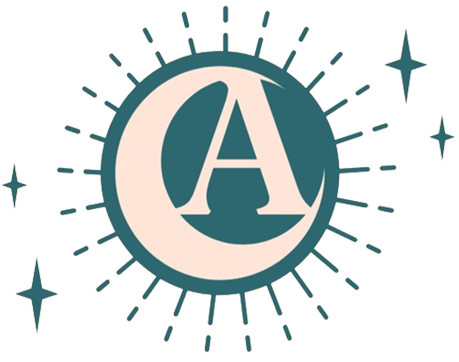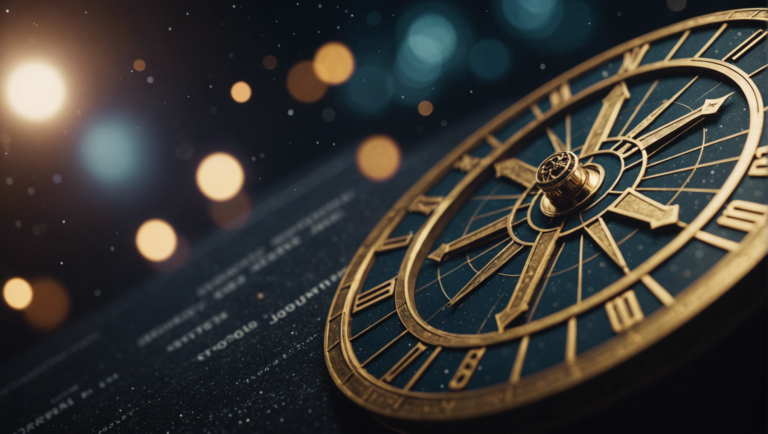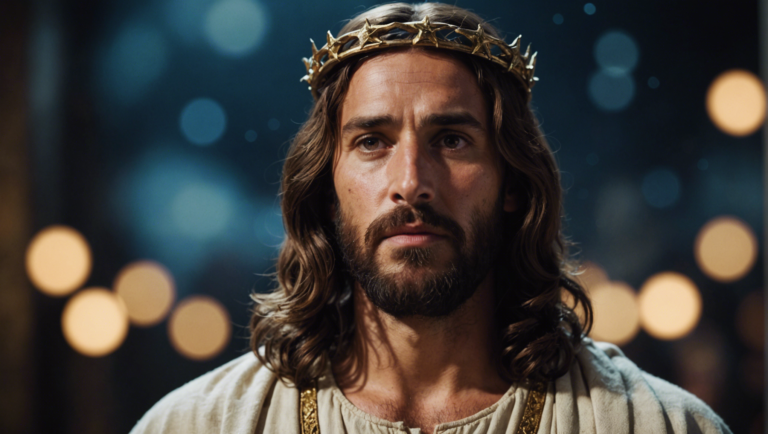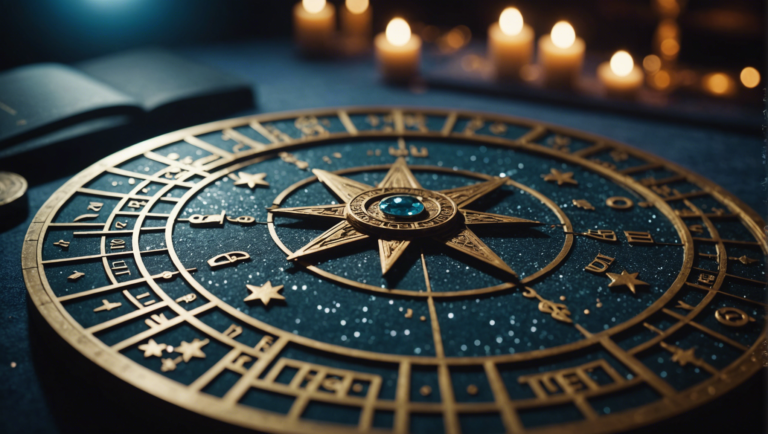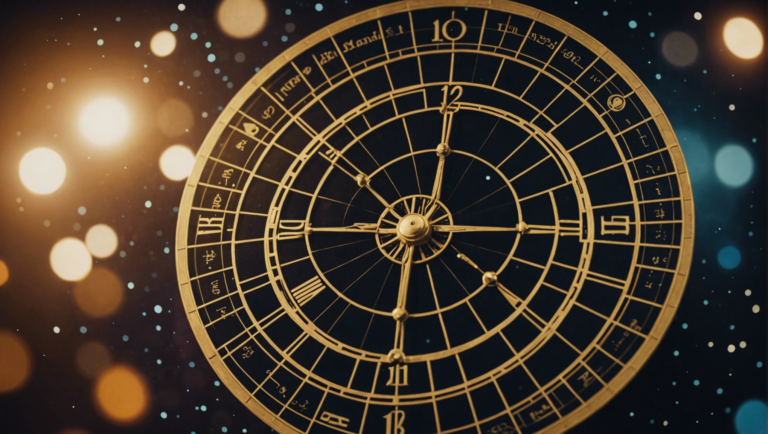What Does An Astrologer Do
The Role and Workings of an Astrologer: Deciphering the Stars to Guide Your Path
Astrology, a practice as ancient as civilization itself, exists at the intersection of the mystical and the mundane, guiding individuals through life’s complexities with the wisdom of the stars. The role of an astrologer transcends mere prediction, delving into the deep waters of human fate and potential, interpreting celestial patterns to provide clarity and direction. This profound occupation requires not only a thorough understanding of astronomical phenomena but also an intuitive grasp of the human condition.
The Astrologer’s Craft: A Blend of Science and Intuition
Astrology operates on the foundational belief that celestial bodies—planets and stars—have a direct influence on human affairs. An astrologer interprets the movement and position of these celestial entities at specific moments, such as a person’s birth, to generate insights and forecasts about their life, personality, and destiny. This delicate balance of empirical knowledge and intuitive interpretation marks the unique skill set of the astrologer, setting them apart as guides and counselors in the cosmic dance of life.
The intricacies of astrology extend beyond simple horoscope readings seen in daily media. It encompasses various systems and traditions, from the widely recognized Western astrology based on the Zodiac signs to Vedic astrology, which has its roots in ancient Indian wisdom. Each system has its own methods and tools, but all share the common goal of seeking harmony between the earthly and the celestial.
Navigating Life’s Waters: How Astrologers Assist
Astrologers serve as navigators in the tumultuous sea of life. By casting a natal chart—also known as a birth chart—an astrologer maps out the planets’ positions at the time of an individual’s birth. This chart acts as a cosmic blueprint of one’s personality, strengths, weaknesses, and potential life path. Through detailed analysis, astrologers offer insights into personal development, relationship compatibility, career choices, and even the timing of important life events.
More than just fortune tellers, astrologers are advisers, using their expertise to counsel on timing and decisions. They explore the dynamic interplay of influences reflected in the stars, considering not just the natal chart but also the current and forthcoming planetary arrangements to advise on optimal moments for action or caution.
The Ethical Dimensions of Astrological Practice
Given the deeply personal and potentially impactful nature of their readings, astrologers uphold a strict ethical code. Confidentiality, respect for the client’s autonomy, and honesty are paramount. A responsible astrologer aims to empower, not dictate, guiding clients toward self-awareness and self-determination rather than fostering dependency on celestial determinism. They are mindful of the psychological impact of their readings, striving to offer hope and constructive guidance even when the stars suggest challenges ahead.
The Modern Astrologer: Bridging Ancient Wisdom and Contemporary Life
In the digital age, the accessibility of astrological services has expanded exponentially. Online platforms, apps, and social media have brought astrology into the mainstream, enabling astrologers to reach a global audience. Yet, amidst the plethora of digital content, the essence of astrological practice remains unchanged: to offer a deeper understanding of oneself and one’s place in the cosmos through the timeless language of the stars.
Astrologers today continue to study and refine their craft, drawing on both ancient traditions and contemporary psychological insights. They contribute to a growing body of astrological knowledge that embraces both the scientific and the mystical, providing a holistic perspective on life’s mysteries.
The work of an astrologer, therefore, is profound and multi-dimensional. It is an art form rooted in the wisdom of the ages, brought to life through the skill and insight of the practitioner. By deciphering the messages written in the stars, astrologers guide individuals in navigating their unique life journey, offering illumination and empowerment amid the unpredictability of existence.
Astrology versus Astronomy: Understanding the Distinctive Differences
The celestial sphere, a boundless horizon stretching beyond our immediate perception, has long piqued human curiosity. Within this expanse, two schools of thought have emerged, each dedicated to unraveling the mysteries of the cosmos but from distinctly different perspectives—the methodical, evidence-based discipline of astronomy and the interpretative, symbolic realm of astrology. These fields, often mistaken for one another, follow separate paths in their quest to understand the universe.
The Science of Stars: Astronomy
Astronomy stands as one of the oldest natural sciences, grounded in the rigorous observation and analysis of celestial bodies, from stars and planets to galaxies and beyond. It employs the scientific method to uncover the laws governing the universe, seeking to understand the origins, evolution, and properties of celestial objects and phenomena.
Observing the Heavens: Tools and Techniques
Modern astronomy utilizes a vast array of instruments, including telescopes and spacecraft, to peer deep into the cosmos, capturing light from billions of years ago and far-flung corners of the universe. It is a discipline that demands precision, relying on mathematics, physics, and chemistry to decipher the secrets of the cosmic ballet.
The Art of Interpretation: Astrology
In contrast, astrology presents a more personalized, human-centric approach to the cosmos. It posits that the positions and movements of celestial bodies at the time of one’s birth can influence personality traits, relationships, and life events. Astrology sees the sky as a mirror reflecting the human experience, where planetary alignments are read as omens or signs that guide individuals in life.
Charting Destiny: Methods and Meanings
Astrologers craft detailed charts to map the positions of planets and stars at specific moments, such as a person’s birth. These charts, or horoscopes, serve as the foundation for predictions and insights into one’s character or future prospects. Unlike astronomy, astrology does not seek empirical evidence for its assertions; rather, it thrives on symbolism, tradition, and the belief in a cosmic connection to human affairs.
Diverging Pathways: Evidence versus Belief
The fundamental difference between astronomy and astrology lies in their approach to evidence and belief. Astronomy, as a branch of science, subjects its theories to rigorous testing, seeking observable, repeatable evidence to support its findings. It is an ever-evolving field, where new discoveries are continuously reshaping our understanding of the universe.
Astrology, however, operates within the realm of belief, where empirical evidence is not the cornerstone. Its value and accuracy are often debated, with skeptics questioning the validity of astrological predictions. Despite this, astrology maintains a dedicated following, with many finding meaning and guidance in its celestial charts.
Bridging Two Worlds
Despite their differences, both astronomy and astrology share a common ancestry, tracing their roots back to ancient civilizations that gazed upon the stars in wonder. Over the centuries, these paths diverged, shaped by the evolving needs and questions of humanity.
Today, astronomy pushes the boundaries of what we know about the universe, while astrology offers a reflection of the human experience through a cosmic lens. Whether through the telescope’s eye or the astrological chart, our fascination with the stars endures, a testament to the enduring quest for understanding that defines our species.
In exploring the vast expanse above us, we find not just distant suns and spinning galaxies, but a mirror reflecting our own place in the universe. The distinction between astronomy and astrology, then, is more than just a matter of science versus belief—it is a reflection of the diverse ways in which we seek to understand our world and ourselves. Whether grounding our curiosity in the rigors of scientific inquiry or charting our life’s course through the stars, our celestial journey continues, guided by both the light of distant galaxies and the personal stars we choose to navigate by.
The Historical Evolution of Astrology: From Ancient Babylon to the Digital Age
Astrology, a discipline that intertwines cosmic events with earthly affairs, has journeyed through the annals of history, evolving with each civilization that has embraced it. From ancient Babylonian times to our current digital era, astrology has persisted, adapting and flourishing in various cultural contexts. This exploration into the historical evolution of astrology reveals not just changes in methodology and understanding but also a constant human quest for knowledge and meaning in the stars.
The Dawn in Babylon
The earliest recorded practice of astrology dates back to ancient Babylon, around the 2nd millennium BCE. Here, astrology began as an amalgamation of simple celestial observations, mythology, and calendar systems, primarily used for predicting seasonal changes and celestial events. The Babylonians were pioneers in developing the zodiac, a celestial coordinate system that divides the sky into twelve parts, each named after the constellation located in its segment. This early form of astrology was predominantly mundane, focused on affairs of the state and natural events rather than individual destinies.
Hellenistic Influences and Horoscopic Astrology
As the baton of civilization passed from the Babylonians to the Greeks, astrology underwent significant transformation. The blend of Babylonian celestial science with Egyptian and Greek philosophical thought in the Hellenistic period gave rise to horoscopic astrology. This form of astrology introduced the concept of the horoscope, a chart representing the positions of the sun, moon, planets, and zodiacal signs at specific moments, such as a person’s birth. This innovation allowed astrologers to make predictions and analyses of individuals’ personalities, potential, and life events, marking a shift from collective concerns to personal guidance.
The Medieval and Renaissance Resurgence
Astrology’s journey through the Middle Ages and the Renaissance was marked by consolidation and expansion. Islamic scholars preserved and augmented astrological knowledge, including advancements in astronomical observation and the creation of more sophisticated astrological charts. By the time this enriched knowledge returned to Europe, astrology had become an integral part of medical practice, political strategy, and daily life. Notable figures of the Renaissance, such as Nostradamus, exemplify astrology’s high status during this era, with its applications ranging from predicting political upheavals to personal medical treatments.
The Age of Enlightenment and Skepticism
The Age of Enlightenment brought with it a wave of skepticism towards astrology. The rise of empirical science and the mechanistic worldview questioned astrology’s premises and efficacy, leading to its marginalization from mainstream scholarly and scientific communities. Astrology’s practice persisted, but it was increasingly relegated to the realms of entertainment and personal belief, divorced from the scientific and academic respect it once commanded.
Astrology in the Digital Age
In our current digital age, astrology has undergone a renaissance, facilitated by technology. The internet has democratized access to astrological knowledge, allowing instant generation of horoscopes, vast repositories of astrological data, and forums for sharing insights and experiences. Social media platforms have played a significant role in astrology’s resurgence, with astrologers leveraging these spaces to reach a broader audience. Today, astrology sits at the unique intersection of spirituality, psychology, and entertainment, enjoying popularity and engagement that spans cultures and demographics.
Astrology’s historical evolution from ancient Babylon to the digital age highlights its enduring appeal and adaptability. Despite changing scientific understandings and societal attitudes, astrology has remained a significant cultural force, continuously evolving to meet the needs and curiosities of each era. Its journey reflects humanity’s perpetual fascination with the cosmos and the enduring search for meaning in the stars, a testament to astrology’s resilience and the unquenchable human thirst for knowledge and connection.
How to Consult an Astrologer: Preparing for Your First Astrological Reading
Embarking on the journey of consulting an astrologer for the first time can feel like stepping into a vast, unknown realm. Astrology, with its celestial intricacies, offers profound insights into one’s character, life patterns, and the timing of events. As intriguing as it is to unlock these mysteries, knowing how to prepare for your initial astrological reading is essential to maximize the experience’s value. Here, we delve into the crucial steps to ensure you are well-prepared for your consultation, paving the way for a session that is both enlightening and transformative.
Understand the Basics of Astrology
Before you schedule your reading, familiarize yourself with astrology’s fundamental principles. This broad knowledge will help you comprehend the astrologer’s language, making the session more interactive and insightful. Recognize the significances of the sun, moon, and rising signs, as these elements play pivotal roles in defining one’s astrological profile. Grasping these concepts enhances your understanding of the insights shared during your reading.
Set Clear Intentions and Questions
Reflect on what you aim to gain from the astrological reading. Are you seeking guidance on career paths, relationship advice, or insights into personal growth opportunities? Setting clear intentions and preparing specific questions aligns the session with your expectations, enabling the astrologer to tailor the reading to your needs. This focused approach ensures that the consultation addresses your most pressing queries and concerns.
Gather Your Birth Details
Accuracy in your birth details is paramount for a revealing astrological reading. The date, exact time, and location of your birth are critical as they determine your natal chart—the astrological blueprint of your life. Ensure these details are precise, as even a slight error can significantly alter the reading’s accuracy. If you’re uncertain about your birth time, try to obtain it from your birth certificate or by consulting family members.
Choose the Right Astrologer
The relationship between you and your astrologer is a personal one, making it vital to choose someone you resonate with. Research thoroughly, read reviews, and perhaps attend workshops or listen to talks by potential astrologers. Consider their expertise areas—whether in traditional, Vedic, or modern astrology—and ensure it aligns with your interests and the type of guidance you seek.
Embrace an Open Mind and Heart
Approach your reading with openness and receptivity. Astrology invites us into a deeper understanding of ourselves and our life paths, which can sometimes challenge our perceptions and beliefs. Being open to hearing and reflecting upon the astrologer’s insights allows for a more profound and potentially transformative experience. Remember, the reading can reveal unexpected truths and paths, broadening your perspective on life’s possibilities.
Reflect and Take Notes
The depth of information shared during an astrological reading can be overwhelming. Consider recording the session (with your astrologer’s permission) or taking detailed notes. This will enable you to reflect on the insights and guidance at your own pace. Revisiting the session’s content can reveal further layers of understanding and clarity as you process the information over time.
Integrating the Insights
After your reading, take time to integrate the insights and guidance received. Reflect on how this new understanding of your astrological influences can be applied to your life decisions and growth journey. Remember, the reading offers probabilities, not certainties. It’s a tool for self-exploration and growth, empowering you to navigate life’s curves with greater awareness and intent.
Preparing for your first astrological reading requires a blend of practical steps and introspective readiness. By following these guidelines, you set the stage for a session that not only enlightens but also catalyzes personal evolution. Astrology offers a unique lens through which we can understand our lives and ourselves more deeply, and these preparations ensure that you are fully open to the revelations it may bring.
Ethical Considerations in Astrology: Navigating the Line Between Guidance and Determinism
In the realms of the metaphysical and the esoteric, astrology stands out as a discipline rich in symbolism and significance, guiding individuals through the complexities of life. The role of an astrologer, however, goes beyond mere prediction, venturing into the delicate territory of ethical practice. This discourse aims to shed light on the ethical considerations confronting astrologers, navigating the intricate balance between providing guidance and respecting the autonomy and agency of those seeking astrological counsel.
Ethical Foundations in Astrological Practice
Astrology, at its core, is a practice steeped in the understanding of cosmic patterns and their influence on the human experience. Astrologers, as interpreters of these patterns, hold a position of significant influence. The ethical foundation of their practice is built upon the principles of honesty, integrity, and respect for the individual’s free will. It involves a conscientious approach to sharing insights, emphasizing the potential for growth and self-awareness rather than deterministic outcomes.
Nurturing Client Autonomy
A pivotal aspect of ethical astrology lies in nurturing the client’s autonomy. It involves presenting astrological insights in a manner that empowers the individual, fostering a sense of agency in shaping their destiny. This approach requires a delicate balance, acknowledging the influence of celestial dynamics without implying a fatalistic surrender to the stars. It is about encouraging clients to harness astrological insights as tools for personal development and decision-making, rather than deterministic mandates.
Confidentiality and Boundaries
Confidentiality stands as a cornerstone of ethical astrological practice. The astrologer-client relationship is founded on trust, with the understanding that sensitive information revealed during consultations is treated with the utmost discretion. Astrologers must also navigate professional boundaries, recognizing the limits of their expertise and avoiding the role of a therapist or counselor. This necessitates a clear communication of the scope of astrological services and, when necessary, referrals to qualified professionals in other fields.
The Role of Skepticism and Critical Thought
An ethical astrology practice embraces skepticism and critical thought, both from within and from clients. Astrologers should encourage clients to question and critically engage with their readings, fostering a dialogue rather than a one-sided proclamation of fate. This approach demystifies astrology, presenting it as a nuanced tool for reflection rather than an unquestionable authority. It underscores the importance of discernment and encourages individuals to apply astrological insights in a way that resonates with their personal beliefs and experiences.
Navigating the Spectrum of Influence
Astrologers tread a fine line between acknowledging the influence of astrological phenomena and overstating their significance. The ethical challenge lies in conveying the nuanced ways in which celestial dynamics interact with individual agency, avoiding assertions that could lead to resignation or passivity. It is about presenting astrology as a lens through which to view possibilities and challenges, rather than a deterministic script dictating the course of one’s life.
: Ethical Astrology as a Path to Empowerment
The practice of astrology, when approached with ethical rigor, offers a profound medium for self-exploration and understanding. Ethical considerations in astrology revolve around the delicate balance between imparting astrological guidance and honoring the individual’s capacity for self-determination. By fostering an environment of trust, encouraging critical engagement, and respecting the autonomy of clients, astrologers can navigate the ethical complexities of their practice. Ultimately, ethical astrology serves as a path to empowerment, inviting individuals to weave the wisdom of the stars into the narrative of their personal journey, with consciousness and choice at the helm.
Conclusion
Navigating the celestial sphere and its influence on the human journey stands at the heart of what an astrologer does. From the intricate task of deciphering the stars to offer guidance, to understanding the pivotal distinctions between astrology and astronomy, the realm of astrology encompasses a vast landscape of knowledge and practice. The role of the astrologer is far more complex than merely predicting future events; it is about unlocking the symbiotic relationship between the cosmos and the individual, providing insights that can guide decisions, improve understanding of personal traits, and illuminate potential paths that lie ahead.
Astrology and astronomy, often mistaken as synonymous, are distinctly different disciplines—the former delves into the spiritual and psychological impact of celestial bodies on human lives, while the latter is concerned with the scientific study of those celestial bodies themselves. This distinction is crucial for appreciating the depth of astrology as a field that integrates astronomical knowledge with metaphysical interpretations, creating a unique lens through which we can view our lives and the universe.
The historical evolution of astrology from the ancient civilization of Babylon to the digital age is a testament to its enduring relevance and adaptability. Astrology’s journey through time reflects humanity’s constant quest for meaning and connection with the cosmos. This ancient practice has been shaped by cultures, societies, and technological advancements, emerging as a tool that not just predicts, but also empowers and enlightens. In the sands of Mesopotamia, the stars were once consulted by priests to forecast the will of the gods; today, they are interpreted by modern astrologers to offer personal insights and promote self-awareness through digital platforms, proving the timeless nature of humanity’s fascination with the stars.
For those seeking to consult an astrologer, preparing for your first astrological reading is an intimate step towards self-discovery. It involves not just a curiosity about the future but an openness to explore the depths of one’s psyche and how it might reflect the cosmic dance of the planets. A successful consultation is a two-way process, requiring honesty, introspection, and a willingness to engage with the astrologer’s insights. This dialogue can uncover profound truths and possibilities, offering clarity and direction amidst the uncertainties of life.
However, the practice of astrology, with its profound influence and potential for insight, also navigates ethical considerations. The fine line between offering guidance and imposing a sense of determinism is one that both astrologers and consultees must be aware of. Astrology presents possibilities, not certainties, and its ethical practice involves empowering individuals to exercise their free will and make informed choices about their life paths. The responsibility of the astrologer lies in providing insights that are insightful and liberating, rather than deterministic or prescriptive.
The exploration into the workings of an astrologer reveals a practice that is as complex as it is fascinating, bridging the mystical and the empirical, the ancient and the modern. Astrology offers a unique perspective on the human experience, grounded in the celestial movements yet intimately connected to the individual’s inner world. Whether through understanding the distinctive differences between astrology and astronomy, appreciating its historical journey, preparing for a reading, or navigating its ethical landscape, astrology invites us on a journey of exploration and self-discovery. It challenges us to consider our place in the universe, not as mere spectators but as active participants in the cosmic narrative, guided by the stars but steered by our own choices and actions. Engaging with astrology, therefore, is not just about seeking predictions; it’s about embarking on a profound voyage towards understanding the interconnectedness of all things and finding our unique place within this vast, celestial tapestry.
